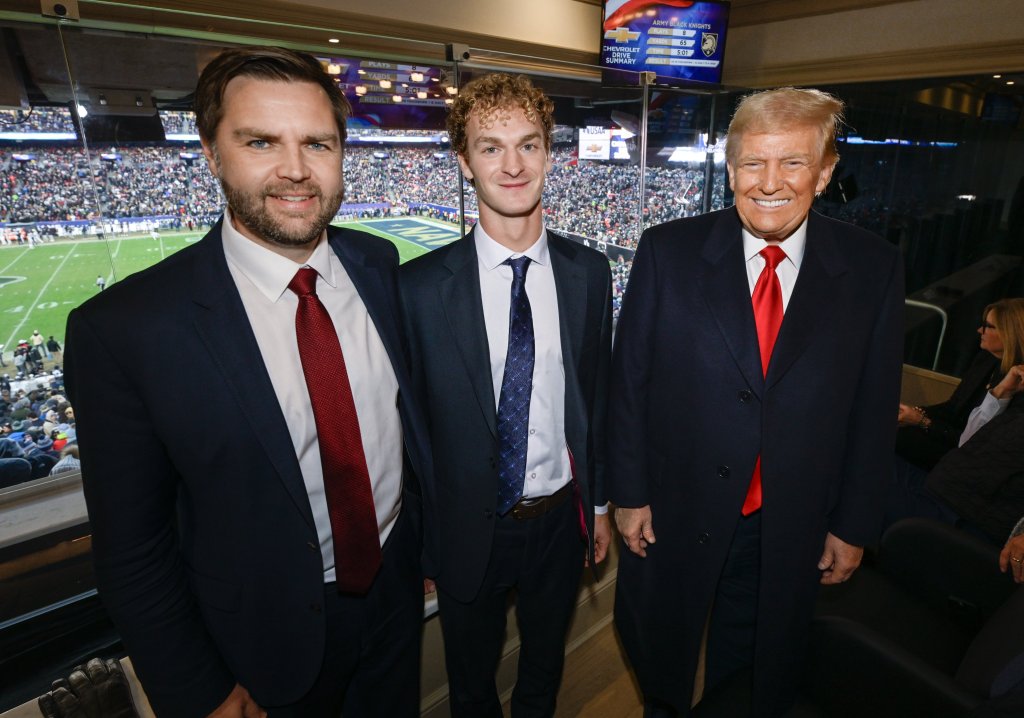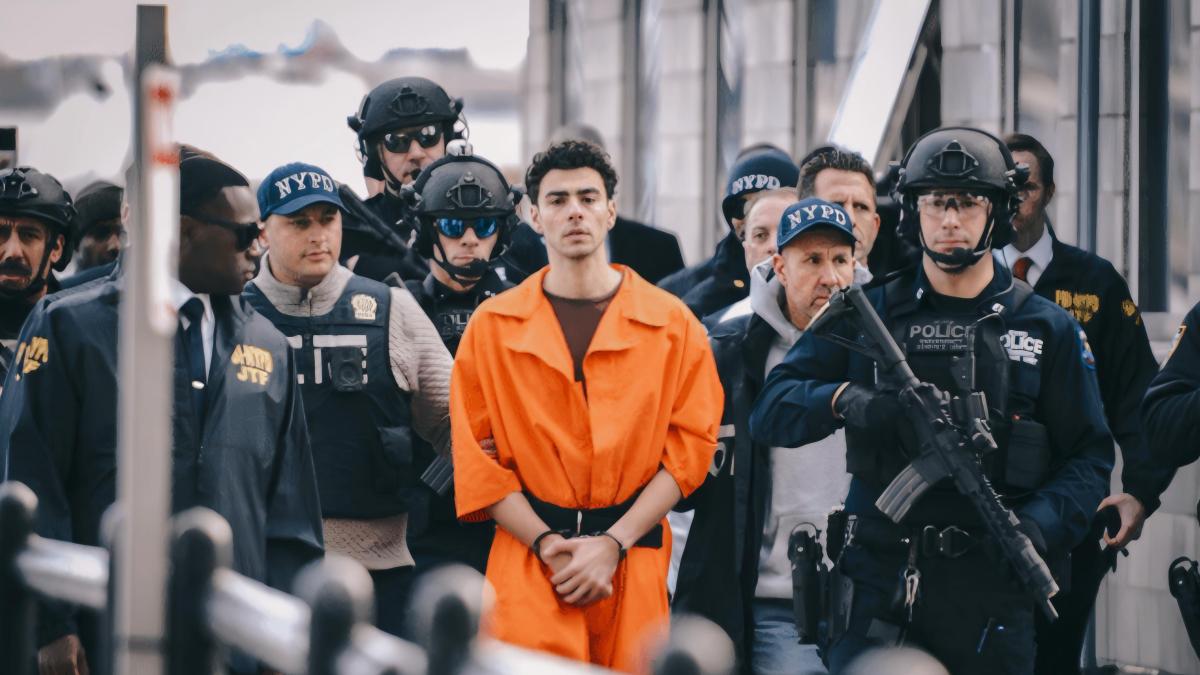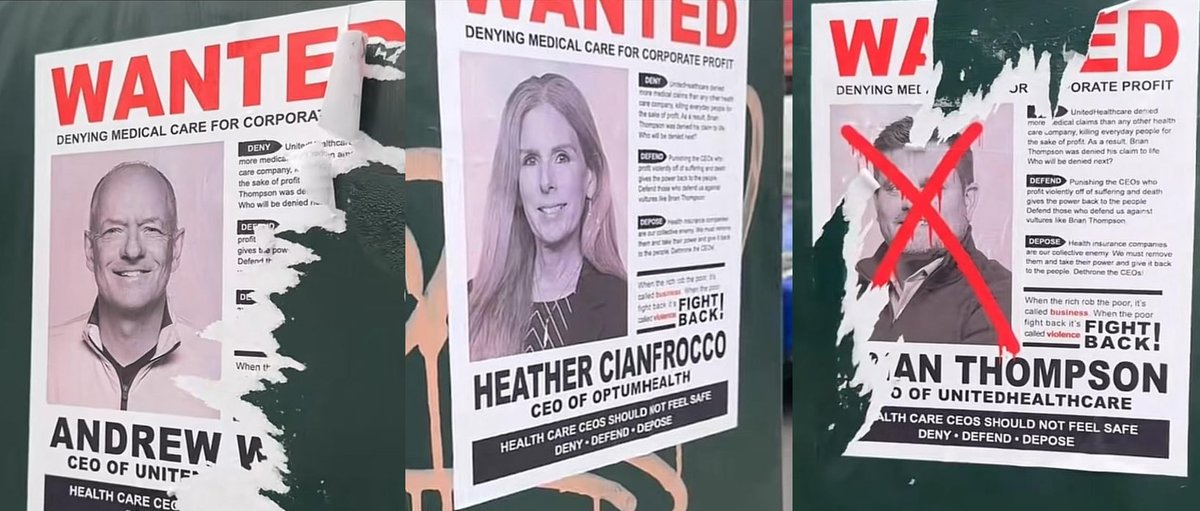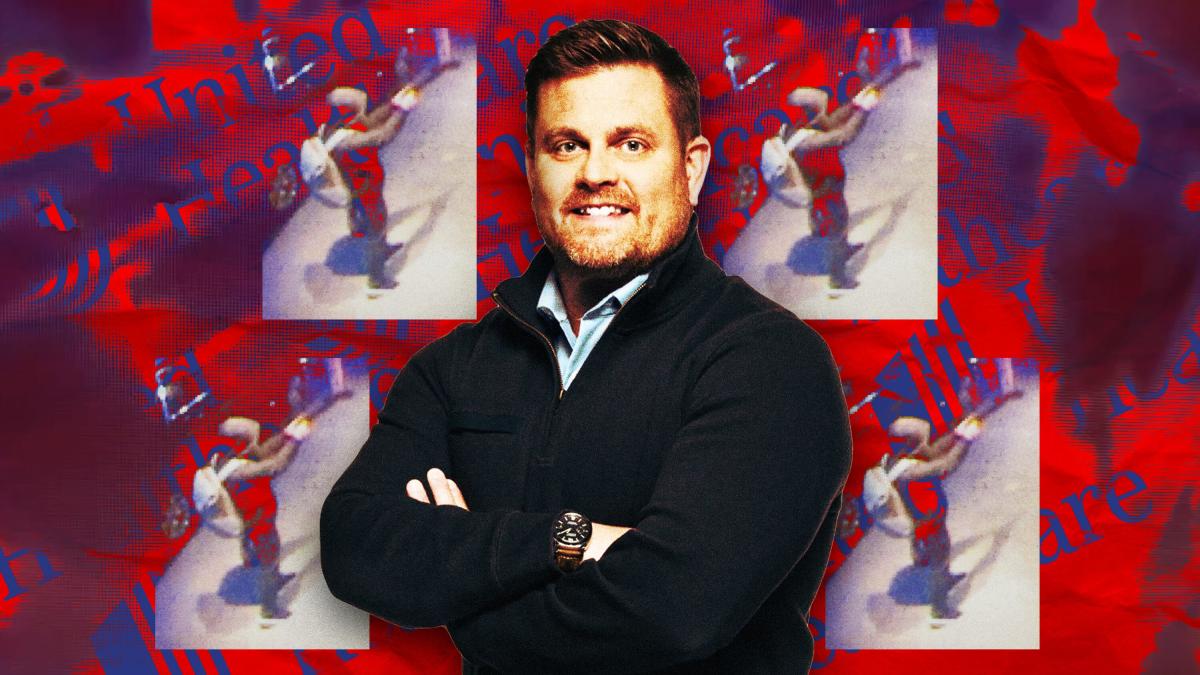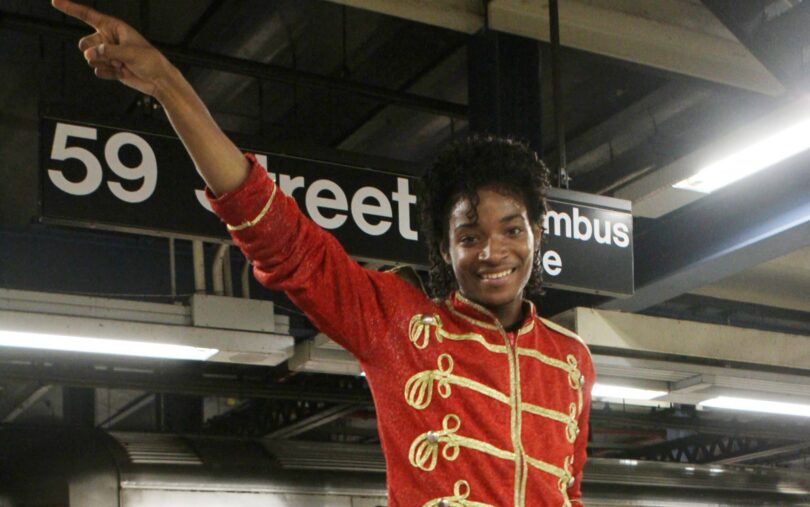
This last month has shown America that society will gladly tolerate vigilante violence, provided a vigilante chooses the right target.
In 2023, Daniel Penny killed Jordan Neely — a mentally ill, homeless Black man — on a New York City subway. He was acquitted by a jury and eventually received a personal invite from the Vice President-elect of the United States to watch the Army-Navy football game in a VIP box with the three most powerful men in the nation.
In that same city, Luigi Mangione allegedly killed Brian Thompson – the CEO of one of the most profitable corporations in the world — outside of his Midtown Manhattan hotel. The shooting kicked off a manhunt that lasted nearly a week until Mangione was apprehended by Pennsylvania authorities. He’s been indicted on multiple charges including first-degree murder, which carries a maximum sentence of life in prison without parole if convicted.
The contrast in how Penny and Mangione have been covered in the media and treated by the elite show that vigilante violence actually is acceptable in America when carried out against those with little to no agency. But Mangione’s alleged act and its reception by ordinary Americans with little agency of their own suggests something much more ominous and sinister: America is no longer a nation of institutions, but a nation in which random violence is the only remaining form of accountability for the rich and powerful.
Jordan Neely’s killer is celebrated by the elite
On May 1, 2023, Daniel Penny — a veteran of the US Marine Corps — was on the F train line in New York’s SoHo neighborhood when Neely reportedly began acting erratically, according to witnesses who were present at the time. A freelance journalist who filmed Neely’s death said Neely, who was a 30 year-old Michael Jackson impersonator who lived on the street, was menacing passengers and throwing trash, though he hadn’t actually assaulted anyone.
Neely began shouting about how he was fed up with not having a job or a place to live, and was ready to go to jail. He reportedly made lunging motions at several passengers before Penny eventually put Neely in a chokehold and held him for almost three minutes. When the train arrived at the next station, Neely was unresponsive, and was transported to a local hospital where he was pronounced dead.
During Penny’s trial, he maintained that he was motivated out of a desire to keep other passengers safe from Neely. The jury was deadlocked on one charge of second-degree manslaughter, which led to the judge overseeing the case dropping the charge at the behest of prosecutors in order for the jury to decide on the other charge of criminally negligent homicide, which carries a maximum sentence of just four years. Penny was acquitted after five days of deliberations when the jury failed to unanimously render a guilty verdict on the latter charge.
Penny was received with open arms by the elite despite having killed a man just a year ago. Photos from the 2024 Army-Navy football game show Penny standing between a smiling President-elect Donald Trump and Vance. Other guests in the box included House Speaker Mike Johnson (R-Louisiana), Secretary of Defense-designate Pete Hegseth, Director of National Intelligence-designate Tulsi Gabbard, and billionaire X owner Elon Musk.
“Daniel’s a good guy, and New York’s mob district attorney tried to ruin his life for having a backbone,” Vance wrote on X. “I’m grateful he accepted my invitation and hope he’s able to have fun and appreciate how much his fellow citizens admire his courage.”
Brian Thompson’s alleged killer is condemned by the elite
Brian Thompson’s death earlier this month was similar to Neely’s in that he was also killed in broad daylight in New York City by an alleged perpetrator who claimed to be acting on behalf of others. But unlike Neely, Thompson was a 50 year-old CEO of America’s largest health insurance company (ranked 4th among all Fortune 500 companies in revenue) who made more than $10 million in total compensation in 2023 alone.
Thompson was on his way to a UnitedHealthcare investor meeting when a gunman carrying a pistol equipped with a suppressor shot him in the back several times in the early morning hours of December 4, 2024. Surveillance video shows that when the gun malfunctioned, the shooter calmly slid the jammed round out of the ejection port, chambered a new round, and fired again.
After the shooting, the gunman cut through a nearby alley, and rode a Citibike into Central Park, where he left behind a backpack containing a jacket and fake money from the Monopoly board game. He then boarded a bus out of the city, and the New York Police Department spearheaded a massive multi-state manhunt. An employee at a McDonald’s restaurant in Altoona, Pennsylvania called 911 on 26 year-old Luigi Mangione the following Monday.
Mangione was formally charged in Thompson’s death after police found several pieces of evidence tying him to the crime, like a 3D-printed “ghost gun,” a suppressor, fake identification cards, and a 262-word manifesto that referred to health insurance executives as “parasites” who “had it coming.” The New York Times reported that a separate notebook in Mangione’s possession included a “to-do” list that mentioned killing Thompson “at the annual parasitic bean-counter convention,” saying it was “targeted, precise, and doesn’t risk innocents.”
As deputies hauled Mangione into an extradition hearing in Blair County, Pennsylvania, Mangione shouted to assembled reporters: “It’s completely out of touch and an insult to the intelligence of the American people and their lived experience.”
Police also say they have matched the shell casings found at the scene of Thompson’s murder — which bore the messages “deny,” “defend,” and “depose” — to the ghost gun. The Associated Press reported that those three words are a reference to a common slogan used to describe the health insurance industry’s model: “Delay, Deny, Defend.” And NYPD investigators described Mangione’s view of Thompson’s shooting as a “symbolic takedown” in which Mangione “views himself as a hero of sorts who has finally decided to act upon such injustices.”
Mangione — the 26 year-old scion of a wealthy Baltimore real estate family — holds a Bachelor’s and a Master’s degree in computer science from the University of Pennsylvania, which is a prestigious, private Ivy League school, and has no prior criminal record. While he reportedly had significant lower back pain from spondylolisthesis and underwent back surgery in 2023, he was not a UnitedHealthcare policyholder. Detectives believe he singled out Thompson as the head of the largest health insurance company to make a statement about the industry.
“A reminder: the US has the #1 most expensive healthcare system in the world, yet we rank #42 in life expectancy,” Mangione’s purported manifesto read. “These [indecipherable] have simply gotten too powerful, and they continue to abuse our country for immense profit because the American public has allwed[sic] them to get away with it.”
While Trump was eager to embrace Penny, he hasn’t had the same attitude toward Mangione. During a press conference at his Mar-a-Lago estate in Florida, the president-elect opined that it was “terrible” that Mangione was being lionized as a folk hero online, and likened public support for Mangione to a “sickness.”
Trump notably struck a different chord when he met with right-wing vigilante Kyle Rittenhouse — who successfully claimed self-defense to justify his killing of two Black Lives Matter protesters and wounding of a third in Kenosha, Wisconsin in 2020. While Trump insisted that Mangione having public supporters is “fake news,” he called Rittenhouse a “nice young man.”
And of course, Trump has indicated that he plans to pardon the more than 1,000 vigilantes prosecuted by the Department of Justice for their participation in the deadly January 6, 2021 siege of the US Capitol, potentially within the “first nine minutes” after taking the oath of office. The incoming administration has signaled on multiple occasions that vigilante violence is perfectly acceptable, provided it’s in the service of far-right political objectives.
In a December op-ed for the Washington Post, staff columnist Catherine Rampell lamented that Mangione’s act of vigilante violence wasn’t being met with universal condemnation, but with significant public solidarity. She described the groundswell of support for the alleged assassin as “public bloodlust for destruction and retribution.”
“Americans are rejecting leaders who propose solutions for their problems in favor of antiheroes who want to burn everything down — figuratively or literally,” Rampell wrote. “The system is rigged against you, populists preach, so forget trying to fix that system. Instead, let’s blow it all up and punish whoever rigged it in the first place.”
The jarring juxtaposition of how Penny’s killing of Neely and Mangione’s alleged killing of Thompson is being covered was available for the world to see on the front cover of the December 10, 2024 edition of the New York Post. Penny’s smiling face is shown with the headline: “ENOUGH IS ENOUGH: Jury rejects DA Bragg’s indictment of man who protected subway riders.” And on the left-hand column, Mangione’s face is seen with the headline: “TARGET: CEOS — Revealed: Chilling manifesto of health insurance boss ‘killer.’”
Violence as healthcare policy is widely accepted
It should go without saying that murder is not a viable long-term solution to building an equitable healthcare system or government. But in order to understand why Mangione’s alleged act is being celebrated by so many, it’s important to contextualize the violence that happens under our noses that society considers acceptable. It’s obviously unacceptable for someone to shoot a human being in the back on a city street in a civilized society. But shouldn’t it also be considered unacceptable for a company to deny doctor-prescribed care to a patient — especially if that lack of care endangers human life?
UnitedHealth leads the health insurance industry in claim denials. According to LendingTree’s ValuePenguin, UnitedHealth’s claim denial rate of 32% is twice the industry average of 16%. Ars Technica reported last year that UnitedHealth is being accused in a lawsuit of using artificial intelligence called “nH Predict” to automatically deny claims by elderly patients, even though the AI has a 90% error rate. And ProPublica reported that UnitedHealth is now under new scrutiny for potentially illegal denials of treatment for children with autism “as part of a secret internal cost-cutting program.”
Insurance companies’ claim denial numbers aren’t available to the public, so the exact number of claims UnitedHealth denies in a given year is unknown. The Minnesota Star-Tribune reported that UnitedHealth has approximately 52 million policyholders. If even just 10% of those policyholders filed a claim, and if roughly one-third of those claims were denied, that’s 1.7 million denials each year. Assuming even just 1% of those denied claims were for life-saving healthcare, that means more than 17,000 people would have died in a year due to their insurance company putting profits ahead of care. And that’s just one company!
Such a staggering number of deaths by paperwork shouldn’t be ignored. If you lined up all the victims of every one of history’s most notorious serial killers like Jack the Ripper, H.H. Holmes, Ted Bundy, John Wayne Gacy, and Jeffrey Dahmer — and combined those victims with all the victims of America’s deadliest mass shootings like Las Vegas, Columbine, Sandy Hook, Virginia Tech, and Uvalde, among others — it still wouldn’t come close to the number of people who die every year for simply not being able to afford to pay for healthcare out of pocket.
In 2020, respected medical journal the Lancet found that if the United States had universal single-payer healthcare (or “Medicare for All”), it would simultaneously save 68,000 lives each year along with saving taxpayers $450 billion. This could be interpreted as a roundabout way of pointing out that the private health insurance industry is an unnecessary middleman that only serves to bleed Americans dry for profit, even at the expense of tens of thousands of lives every year.
Journalist Luke O’Neil — who authors the “Welcome to Hell World” newsletter — also explored the phenomenon of cold policy decisions as a contributor to mass death in a 2021 post about the government’s callous decision to curtail Covid-19 safety net programs. O’Neil observed that if people need emergency safety nets to live, and the government refuses to provide funding for those programs, they’re essentially condemning them to death by bureaucracy.
“Technically denying life saving and desperately needed money to people during a pandemic isn't killing them in the same way that shooting them would be it's just inserting the ball into the Rube Goldberg machine of pain that provides an exonerating and distancing sleight of hand between cause and effect,” he wrote. “Invoking ‘the deficit’ is just saying ‘let them die’ in more acceptable terms.”
When institutions fail the people, the people turn to violence
The reason social media is dancing on Thompson’s grave is simple: The systemic denial of justice by American institutions has made it so random acts of violence are the best that people who have been wronged by the system can hope for. However, violence obviously won't create a better system: Thompson is just one CEO who will be replaced by another who will also prioritize profits over care. And according to more recent reporting, even Thompson knew his company was deeply reviled by the public and made efforts to revitalize UnitedHealthcare’s image before he was gunned down.
Thompson’s face was one of several portraits of CEOs on display in New York City, when an anonymous group wheatpasted posters in various locations around the city ahead of Goldman Sachs’ Financial Services Conference. In addition to Thompson (whose face had a large red X drawn over it), other CEOs’ faces were shown including Bank of America chairman and CEO Brian Moynihan, Aetna President Steve Nelson, and CVS Health CEO David Joyner, among several others.
“Healthcare CEOs should not feel safe,” the posters read. “Those who would steal from us have names, faces, and addresses. Justice will only come from the working class.
Mangione’s alleged killing of Thompson is already showing signs of emboldening people across the United States frustrated with the American healthcare system. A 42 year-old Florida woman was recently arrested after saying: “Delay, deny, depose. You people are next,” while arguing about denied claims with her health insurance company. And the collective celebration at Thompson’s murder has led some CEOs to fear for their safety to the point where New York Governor Kathy Hochul (D) is reportedly considering establishing a hotline exclusively for corporate executives to call if they feel their life is in danger.
The fact that threats of violence against wealthy CEOs are now becoming more mainstream should be seen not just as a bloodlust among certain members of the public, but as the natural progression of society when democratic institutions have failed to prevent injustices like people who need life-saving healthcare getting denied by a behemoth insurance corporation, anti-vaccine conspiracy theorists getting tapped to lead all of America’s public health agencies, and convicted felons from being elected president of the United States. Time and again the American people have hoped our institutions would save us from the worst possible outcome, and time and again those institutions have proven to be toothless and weak.
In response to the populist energy surrounding Thompson’s murder, Rep. Alexandria Ocasio-Cortez (D-New York) acknowledged the “mass bubbling of resentment around the precarity that people have been living with” before pointing out that the inevitable conclusion of such outrage — should democratic institutions fail to provide justice and relief — is vigilante violence.
“Of course we don’t want to see the chaos that vigilantism presents,” she said. “We also don't want to see the extreme suffering that millions of Americans confront when your life changes overnight from a horrific diagnosis, and people are led to just some of the worst, not just health events, but the worst financial events of their and their family's lives.”
“I think for people who are surprised, it's a wake-up call for how much of this exists in our society,” she added.
Carl Gibson is a journalist whose work has been published in CNN, USA TODAY, the Guardian, the Washington Post, the Houston Chronicle, the Louisville Courier-Journal, Barron’s, Business Insider, the Independent, and NPR, among others. Follow him on Bluesky @crgibs.bsky.social.

